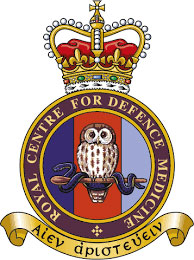National Institute for Health and Care Research
The NIHR was established in 2006 under the government’s health research strategy, Best Research for Best Health. The goal was to create a health research system in which the NHS supported outstanding individuals, working in world-class facilities, conducting leading-edge research focused on the needs of patients and the public.
Today, the NIHR is the nation’s largest funder of health and care research. Their people, programmes, centres of excellence and systems together represent the most integrated health research system in the world. They have transformed research in and for the NHS and helped to shape the health research landscape more broadly.
With substantial funding from the Department of Health and Social Care (DHSC), their scope is broad. They focus on the elements of the ‘innovation pathway’ from early translational research, though clinical and onto applied health and care research, working in partnership with funders of discovery science and those elements of the system focused on adoption and diffusion of innovation.
The NIHR provides evidence to improve outcomes for patients and inform decisions on the effectiveness, efficiency and safety of the health and care system. They address the research needs of a wide range of evidence-users including the public and patients, frontline health and care professionals, managers and policymakers.
By connecting universities, the NHS, local government, other research funders, patients and the public, we deliver and enable world-class research that shapes policy, strengthens the health and care system, drives economic growth, advances science for national and international benefit, and improves lives.
University Hospitals Birmingham NHS Foundation Trust
UHB is one of the largest teaching hospital trusts in England, serving a regional, national and international population. It includes Birmingham Heartlands Hospital, the Queen Elizabeth Hospital Birmingham, Solihull Hospital and Community Services, Good Hope Hospital in Sutton Coldfield and Birmingham Chest Clinic. We also run a number of smaller satellite units, allowing people to be treated as close to home as possible. We see and treat more than 2.2 million people every year across our sites and our hospitals deliver more babies than anywhere else in Europe.
We are world-renowned for our trauma care and have developed pioneering surgical techniques in the management of ballistic and blast injuries, including bespoke surgical solutions for previously unseen injuries. QEHB is designated a Level 1 Trauma Centre.
University of Birmingham
Birmingham has been challenging and developing great minds for more than a century. Characterised by a tradition of innovation, research at the University has broken new ground, pushed forward the boundaries of knowledge and made an impact on people’s lives. We continue this tradition today and have ambitions for a future that will embed our work and recognition of the Birmingham name on the international stage.
Universities are never complete. They develop as new challenges and opportunities occur. At Birmingham we innovate, we push the frontiers of understanding; we ask new research questions, we turn theory through experiment into practice – because that’s what great universities do.
Royal Centre for Defence Medicine
The primary function of the RCDM is to provide medical support to military operational deployments. It also provides secondary and specialist care for members of the armed forces. It is a dedicated training centre for defence personnel and a focus for medical research. The RCDM is a tri-service establishment, meaning that there are personnel from all three of the armed services.
The military staff wear their own distinctive uniforms that vary depending on whether they are serving with the Navy, Army, or Air Force (although some wear a generic green uniform, with rank insignia, depending on the area in which they work).
The RCDM is based at the new Queen Elizabeth Hospital Birmingham, with defence personnel fully integrated with NHS staff to treat both military and civilian patients. The Trust also holds the contract for providing medical services to military personnel evacuated from overseas via the “Aero med service”.
Ministry of Defence
The Ministry of Defence protects the security, independence and interests of the United Kingdom at home and abroad and works with UK allies and partners whenever possible. The aim of the MoD is to ensure that the armed forces have the training, equipment and support necessary for their work, and that we keep within budget.
Defence Science and Technology Laboratory
The DSTL is the UK’s leading government agency in applying science and technology (S&T) to the defence and security of the UK. As part of the Ministry of Defence (MoD), DSTL responds to the S&T direction set by the UK Government’s National Security Strategy and Strategic Defence and Security Review. DSTL brings together the defence and security S&T community, including industry, academia, wider Government and international partners, to provide sensitive and specialist S&T services to MoD and wider Government. DSTL only undertakes work in-house for reasons of national security or political sensitivity. DSTL is responsible for the delivery of the MoD S&T Programme. This accounts for approximately two thirds of DSTL’s total sales, and around half of the Programme’s funding is spent with external suppliers. DSTL follows both Government and commercial best practice, with the Secretary of State for Defence having ultimate responsibility. DSTL is accountable to Parliament, to the UK taxpayer, and to the UK Armed Forces it supports.








